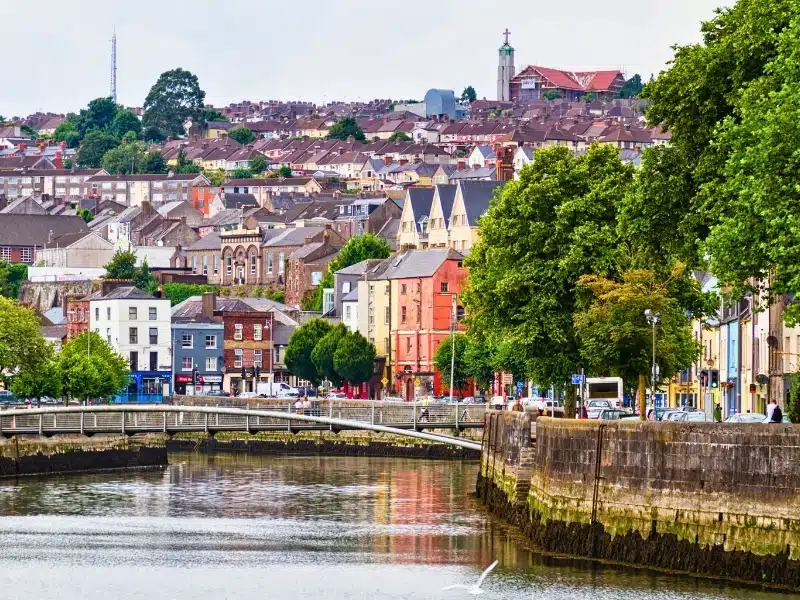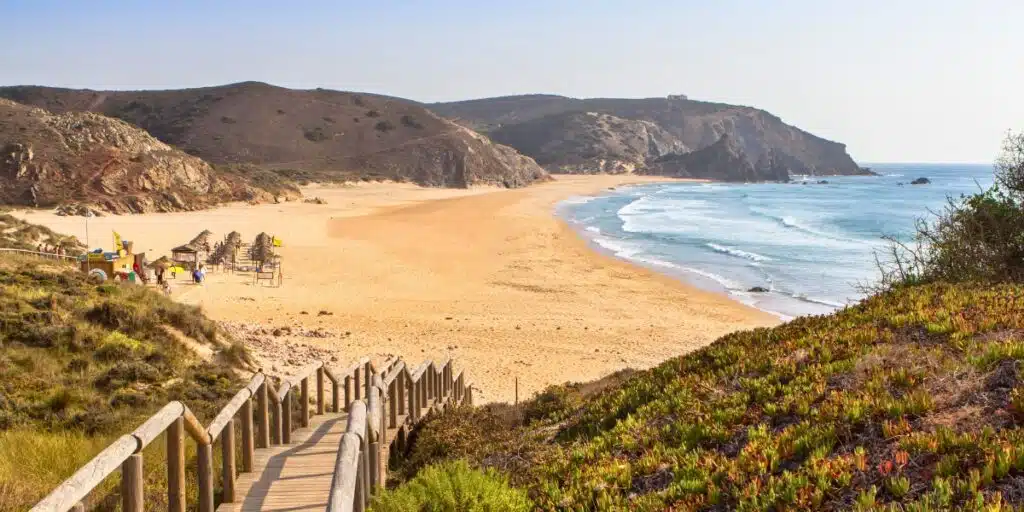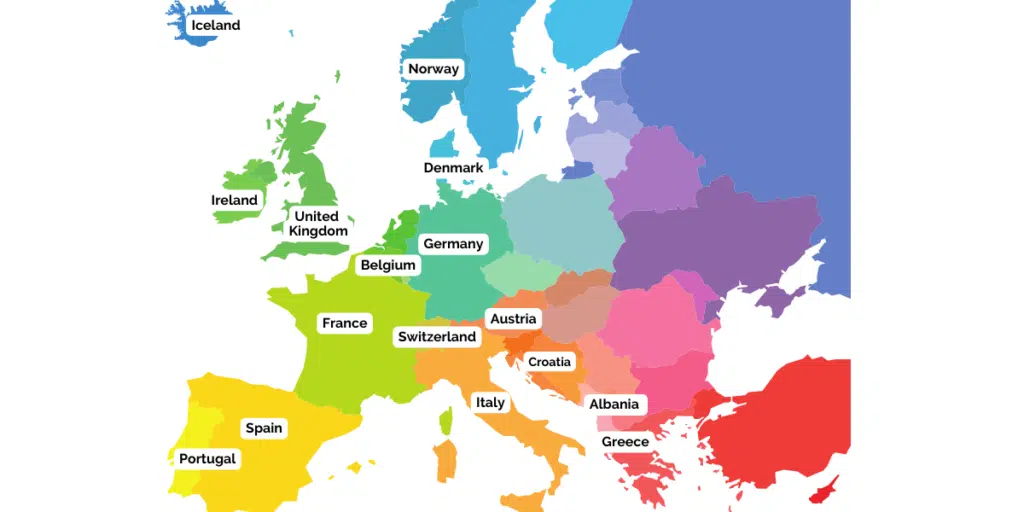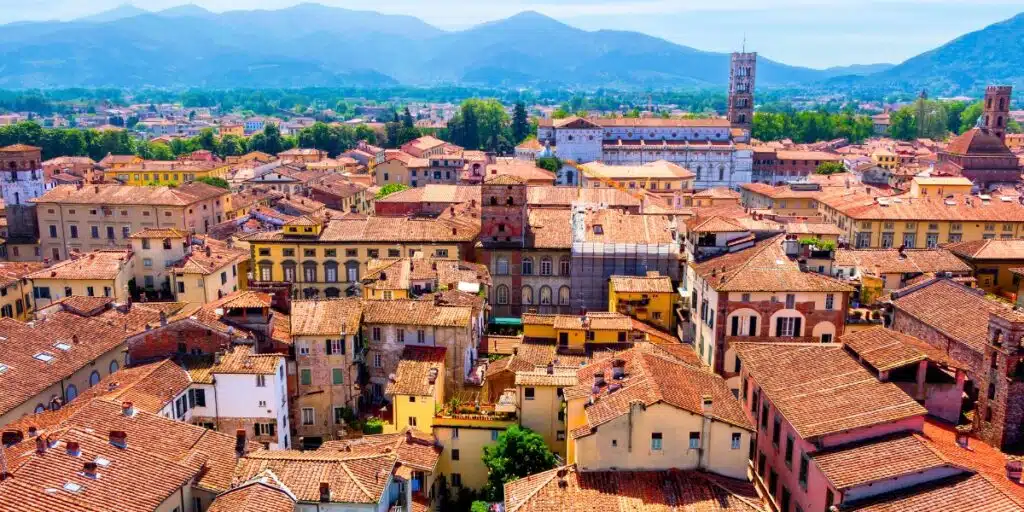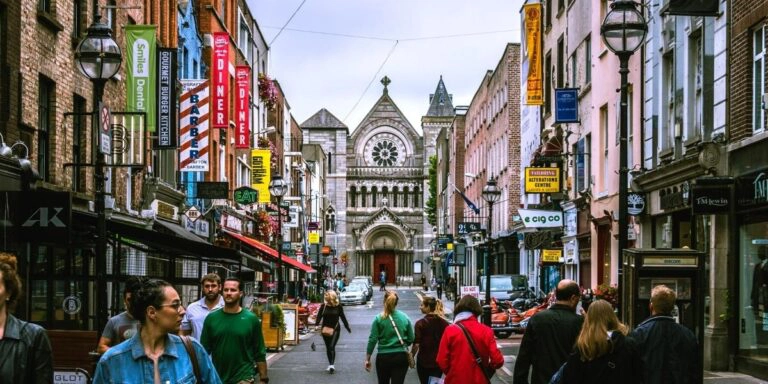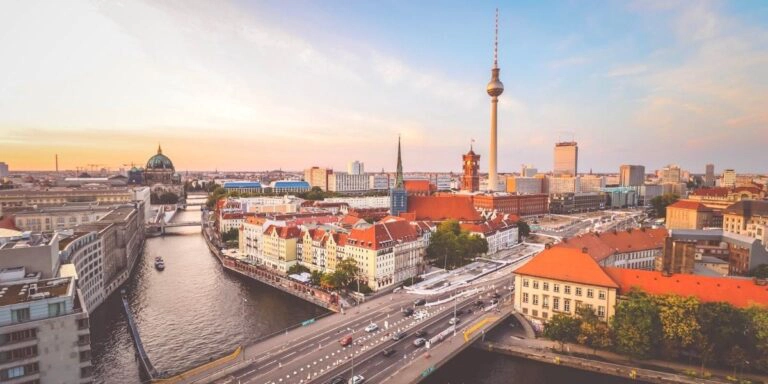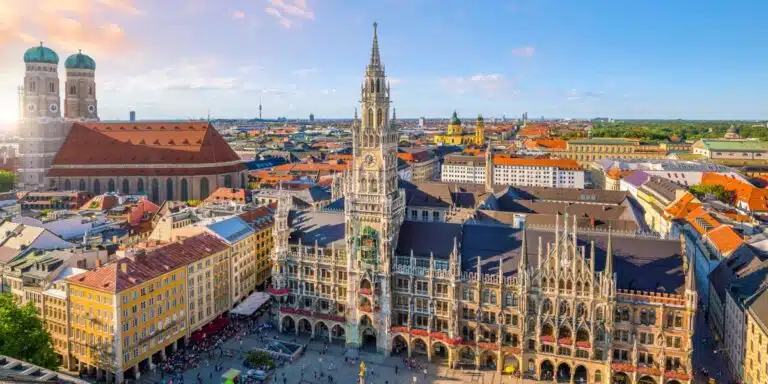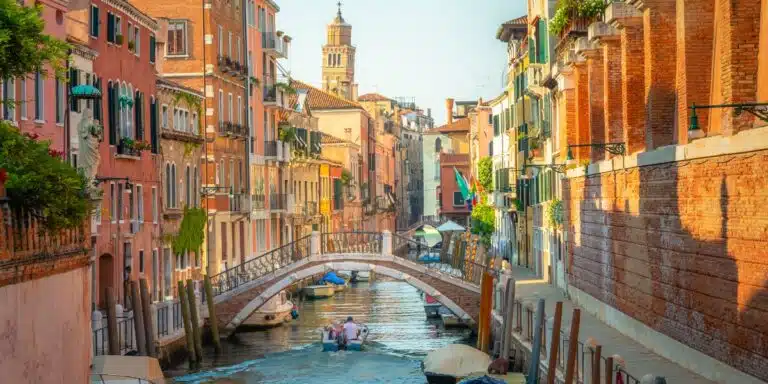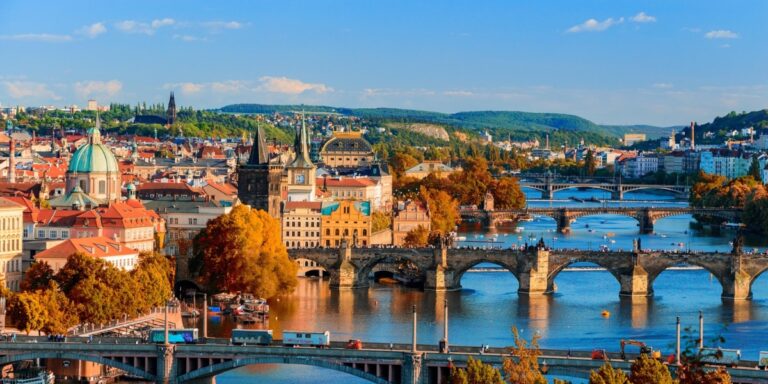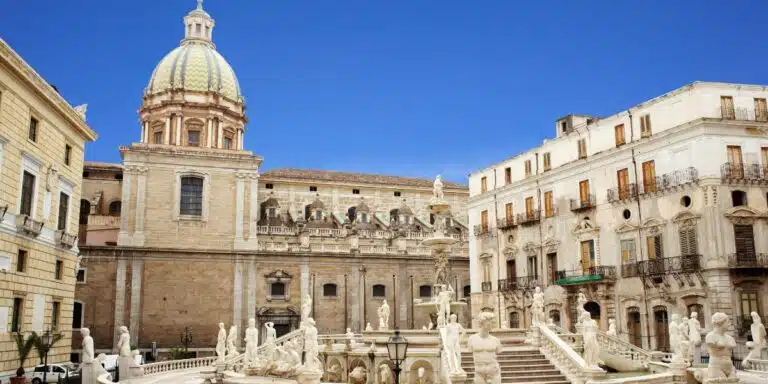This post may contain affiliate links, from which we earn an income. Click here to read our affiliate policy.
When most people imagine a European vacation, they picture Paris, Rome, or London. Those capital cities have undeniable appeal. But sometimes the richest, most enjoyable experiences come from skipping the most obvious stops and venturing into the second city of a country. These cities often combine strong culture, history, affordability, and fewer tourists, making them perfect alternatives for your next trip.
A well-chosen secondary city can add balance and character to a Europe trip itinerary. You’ll find beautiful cities with world heritage sites, lively old towns, and vibrant local scenes that won’t always feel overrun. In this guide, we share 16 of the best European cities that are not capitals but deserve a spot on your Europe bucket list.
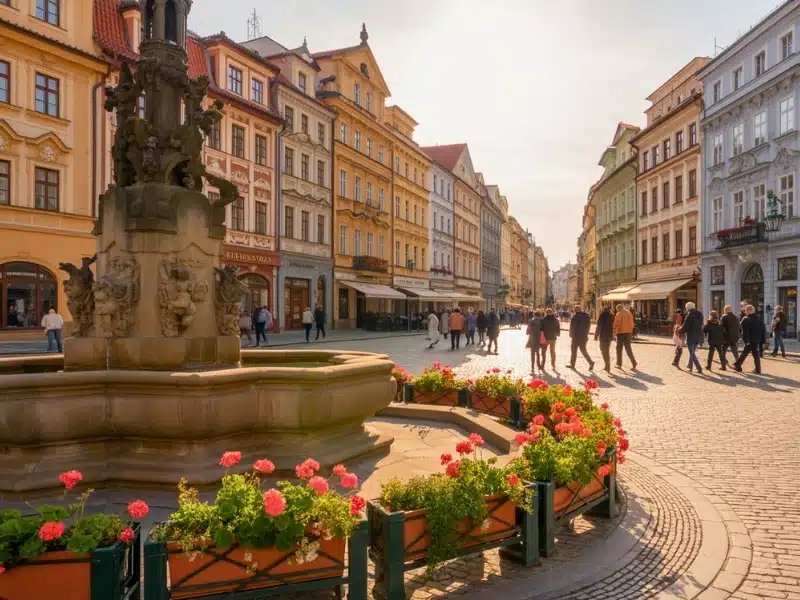
1. Valencia, Spain
Madrid may be Spain’s capital, but Valencia is where many travelers fall head over heels. It combines a lively city centre, historic architecture, long sandy beaches, and an easygoing Mediterranean pace.
You can spend mornings in the UNESCO-listed Silk Exchange, La Lonja de la Seda, wander the old town, and then cycle through the Turia Gardens — a reclaimed riverbed turned green space. The City of Arts and Sciences brings futuristic architecture to your visit, and the food scene is top-tier, with authentic paella and vibrant markets like Mercado Central.
Valencia is one of the prettiest cities in Europe for those who love both history and the coast, and it’s always less crowded and usually cheaper than Madrid or Barcelona.
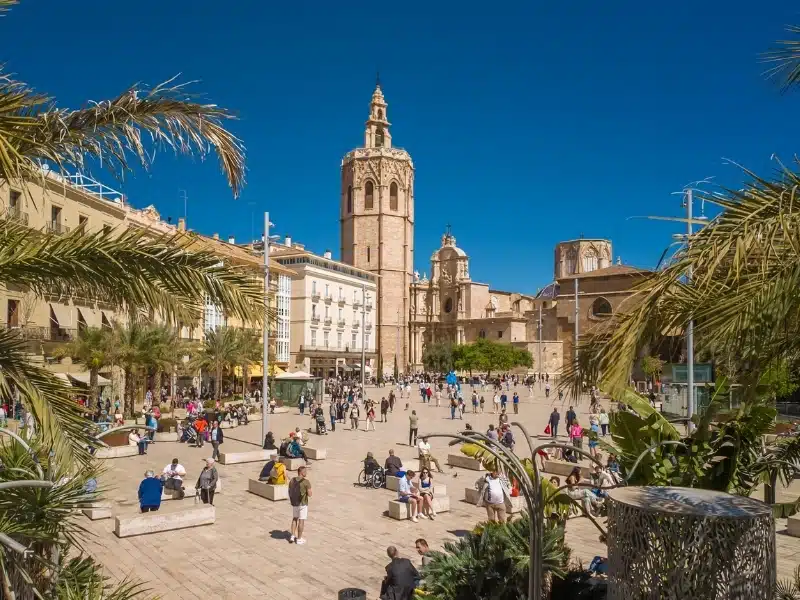
2. Porto, Portugal
Portugal’s capital is Lisbon, but Porto rivals it in atmosphere, architecture, and charm. Located on the Douro estuary, Porto is famous for port wine cellars, the Ribeira riverside district, and bridges like Dom Luís I. The historic centre is a UNESCO World Heritage Site, with narrow alleys, tiled facades, and baroque churches like Igreja de São Francisco.
Take a Douro river cruise, ride the vintage tram ot take the cable car to Villa Nova de Gaia. Sample a Francesinha sandwich (not a keeper) and port wine (not to be missed). For a Europe vacation on a bit of a lower budget, Porto often offers cheaper lodging and meals than Lisbon and offers a more engaging and compact experience.
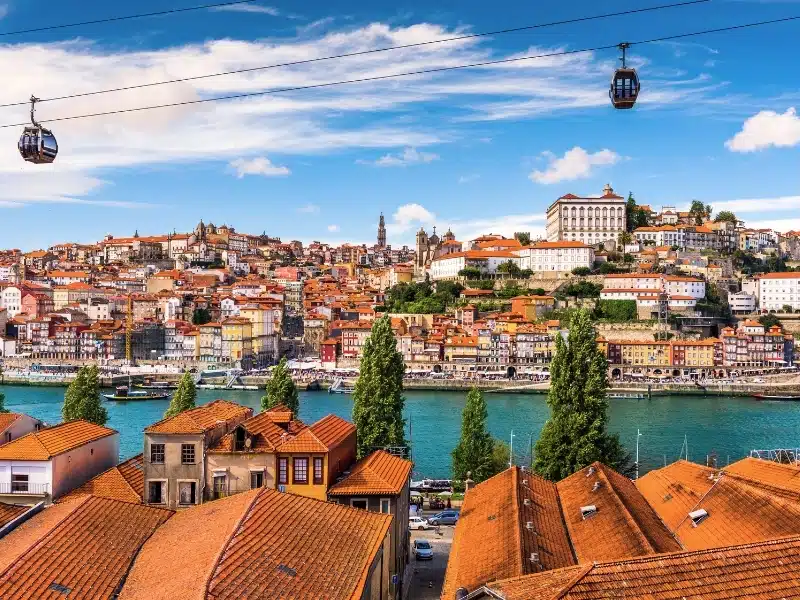
3. Brno, Czech Republic
Prague is often the first stop in the Czech Republic, but Brno, the country’s second city, gives you a more relaxed experience. Its compact centre features the Gothic-Baroque Cathedral of St. Peter and Paul on Petrov Hill, the Špilberk Castle, and Villa Tugendhat, a modernist Mies van der Rohe building which is now a UNESCO site.
The city has lively student energy, hipster cafés, and cultural festivals. It makes a fine complement to Prague in a Czech Republic itinerary and is often more affordable and less crowded.
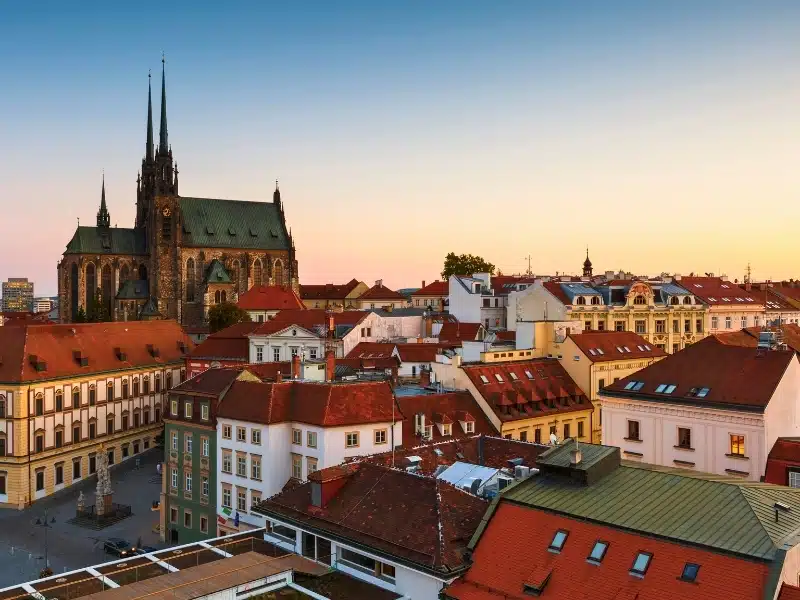
4. Gothenburg, Sweden
Stockholm is Sweden’s capital and the usual magnet for visitors, but Gothenburg, on the west coast, brings a different vibe. It enjoys beautiful canals, leafy islands in the archipelago, and calm waterside life.
The city centre includes Haga, a charming street lined with old wooden houses, and the Liseberg amusement park. Museums like Universeum, Röda Sten, and Göteborgs Konstmuseum add variety. If your Europe vacation plans include the Scandinavian countries of Denmark and Estonia, Gothenburg is a solid second city to include.
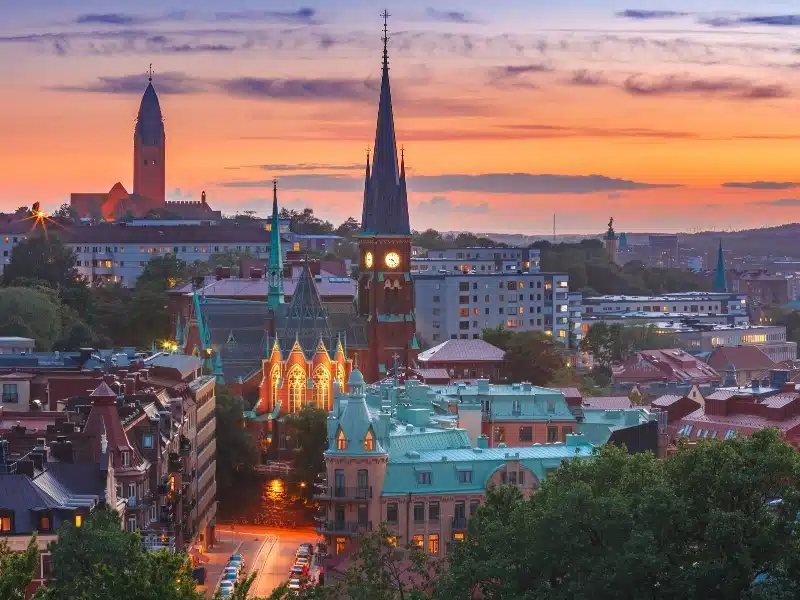
5. Bergen, Norway
Oslo might be Norway’s capital, but Bergen is its beating heart of scenery and seafaring history. Surrounded by seven mountains and framed by fjords, it feels both dramatic and welcoming. The UNESCO World Heritage Bryggen Wharf, with its colorful wooden buildings, hints at its Hanseatic past.
The Fløibanen funicular leads to panoramic views, and the city’s fish market, museums, and waterfront cafes make it perfect for a relaxed stop on a northern Europe itinerary. Bergen is ideal for travelers who want natural beauty and an authentic atmosphere without the capital’s bustle.
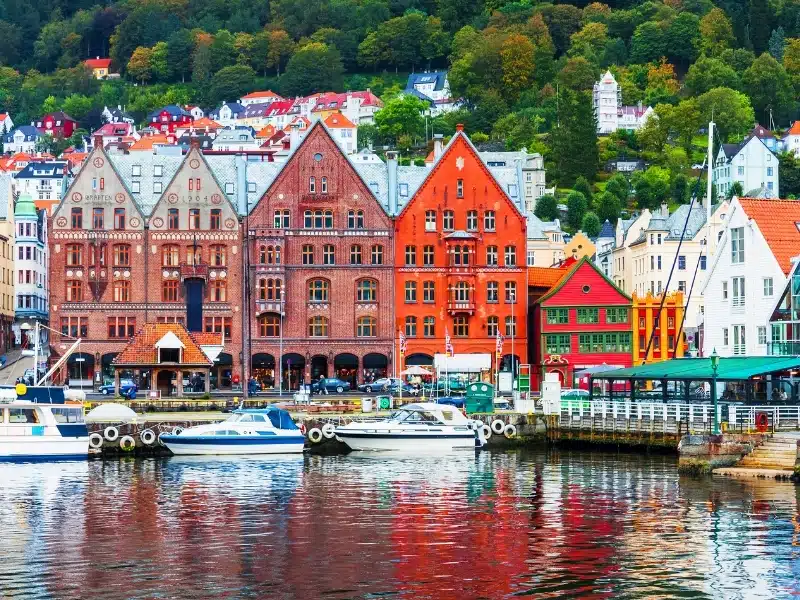
6. Lyon, France
Paris may be the capital, but Lyon is where France’s soul resides. It’s a UNESCO World Heritage city with an atmospheric old town, Roman amphitheatres, and riverside promenades that link the Saône and Rhône rivers. Lyon’s reputation as the food capital of France is well deserved — from traditional bouchons to Michelin-starred restaurants, every meal feels memorable.
Explore the traboules (secret passageways), admire the Renaissance facades, and take the funicular up to the Basilica of Notre-Dame de Fourvière for sweeping views of the city. Lyon is easy to love and a perfect European destination for those who want authentic French culture without Parisian crowds.
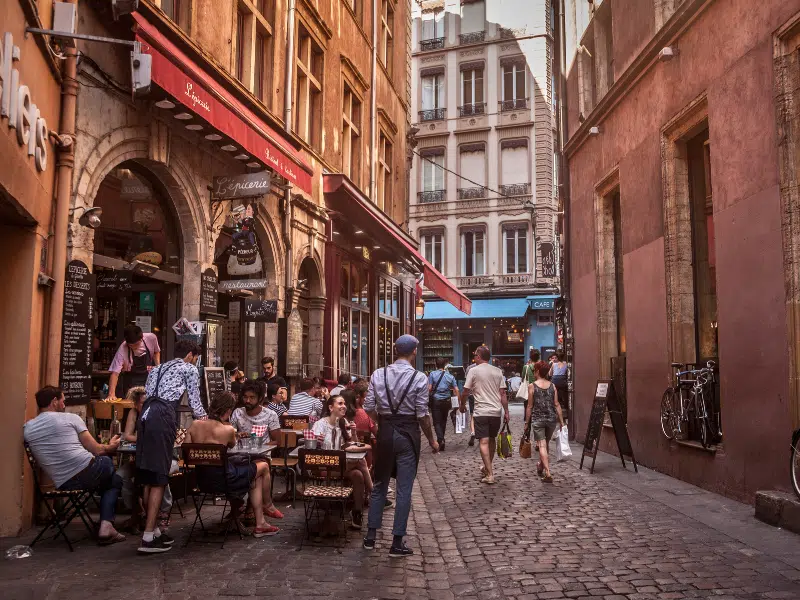
Plan Your Europe Itineraries
7. Basel, Switzerland
Zurich and Geneva get more fame, but Basel quietly outshines them for culture and atmosphere. Sitting where Switzerland, France, and Germany meet, it’s a tri-national gateway with one of Europe’s highest concentrations of museums per capita. The old town blends medieval charm with striking modern architecture, and the Rhine riverfront buzzes with cafés and swimmers in summer.
Don’t miss the Kunstmuseum, the cathedral, and the Paper Mill Museum. Basel makes an excellent addition to a Europe itinerary, especially if you love art, history, and international flair.
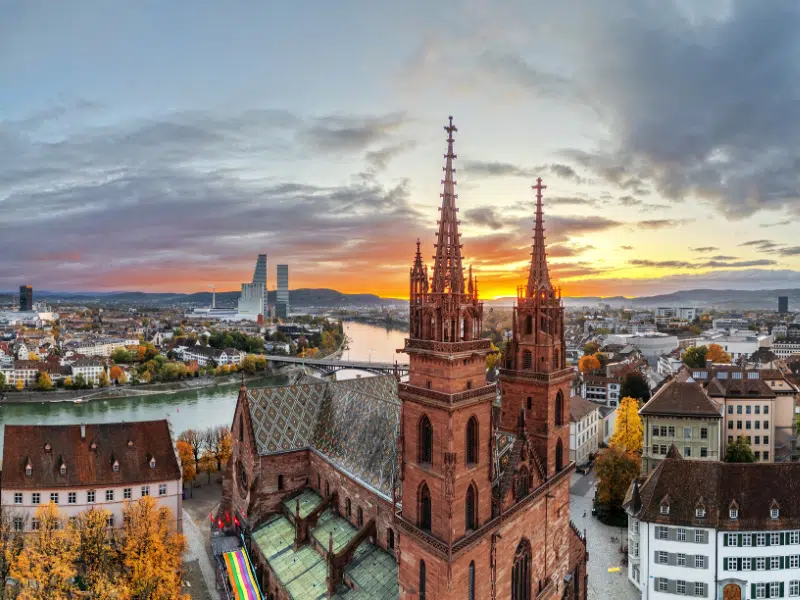
8. Cluj-Napoca, Romania
Bucharest might get the spotlight, but Cluj-Napoca is where Romania feels most alive. Set in the heart of Transylvania, this is a city that blends history with youthful energy thanks to its large student population. The old town is filled with Baroque and Gothic architecture, lively squares, and cafés that spill out onto cobbled streets.
St. Michael’s Church dominates the main square, while Central Park and the botanical gardens offer calm green corners. It’s also a great base for exploring the Transylvanian countryside full of castles and salt mines, making it a smart addition to any Central European itinerary.
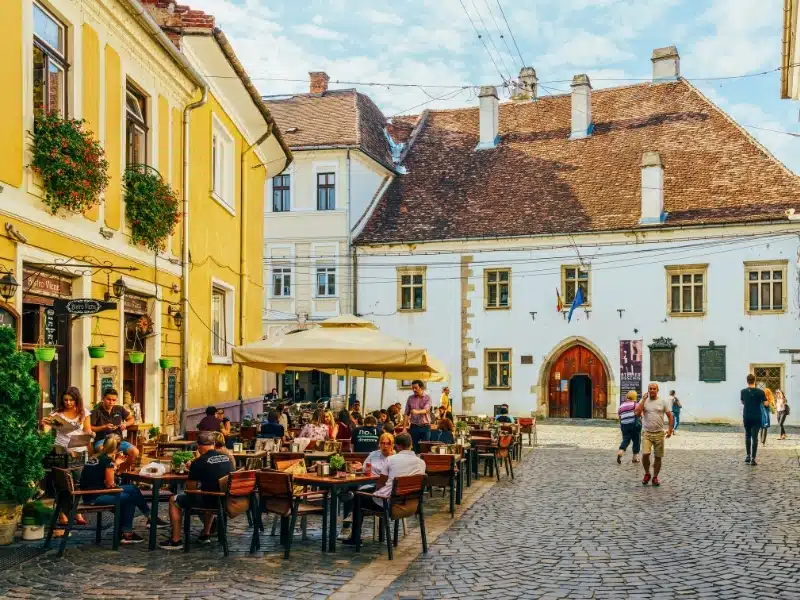
9. Graz, Austria
Vienna’s beauty and historic centre draw tourists, but Graz is the second-largest city in Austria and often overlooked. Its Schlossberg hill with clock tower gives panoramic views, the Landeszeughaus (armory) is unique, and the Mur river flows through modern and medieval quarters alike.
Its compact centre is made for walking, with an atmospheric old town recognised as a UNESCO World Heritage Site. Graz has a slower rhythm than Vienna, with some of Austria’s best food and wine waiting in its cafés, markets, and nearby vineyards.
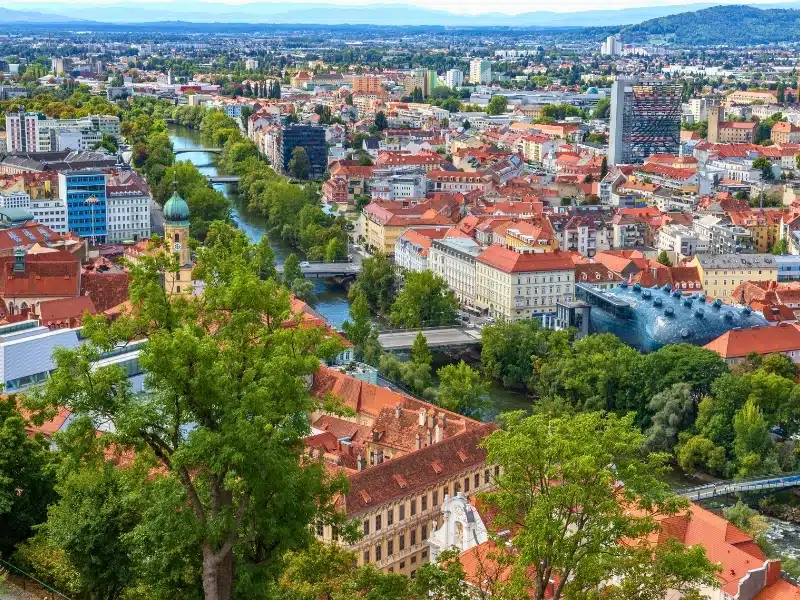
10. Hamburg, Germany
Berlin may be Germany’s capital, but Hamburg feels every bit as bold with its strong Hanseatic past and stunning architecture. Built around its vast port, this northern city mixes maritime grit with modern design. The Elbphilharmonie concert hall dominates the skyline, while the Speicherstadt warehouse district, a UNESCO World Heritage Site, adds historic character with its red-brick canals and bridges.
Wander the Reeperbahn for lively nightlife, explore HafenCity’s waterfront cafés, or take a boat trip through the harbour. Hamburg blends culture and commerce in a way that feels unmistakably European, and it’s one of Germany’s most rewarding cities to explore on foot or by ferry.
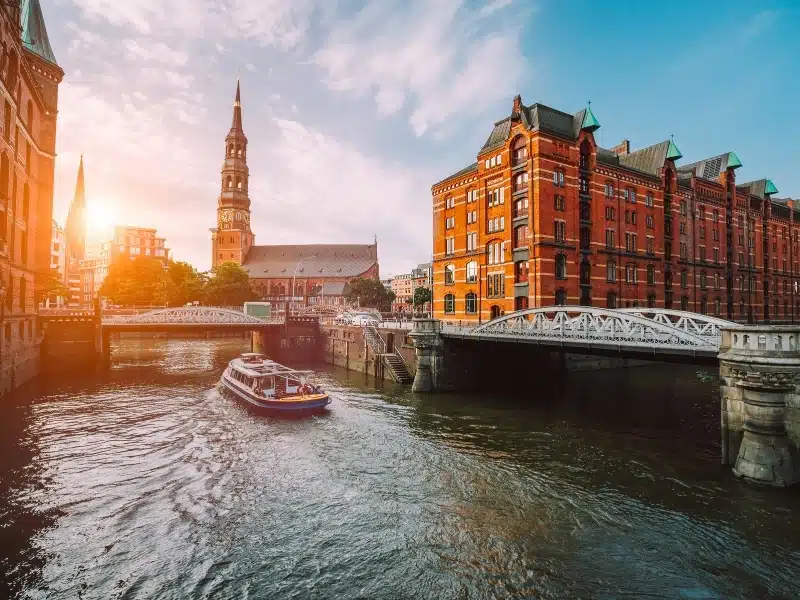
11. Manchester, United Kingdom
London may dominate the headlines, but Manchester has long defined modern Britain. Once the engine of the Industrial Revolution, it’s now a city of creativity, sport, and character. The red-brick canals of Castlefield, the Science and Industry Museum, and the grand civic buildings around Albert Square all tell the story of innovation and reinvention.
The Northern Quarter hums with independent shops, bars, and street art, while football fans can tour the stadiums of two of the world’s biggest clubs. Manchester delivers big-city energy with a friendlier edge and makes a perfect stop on any United Kingdom itinerary.
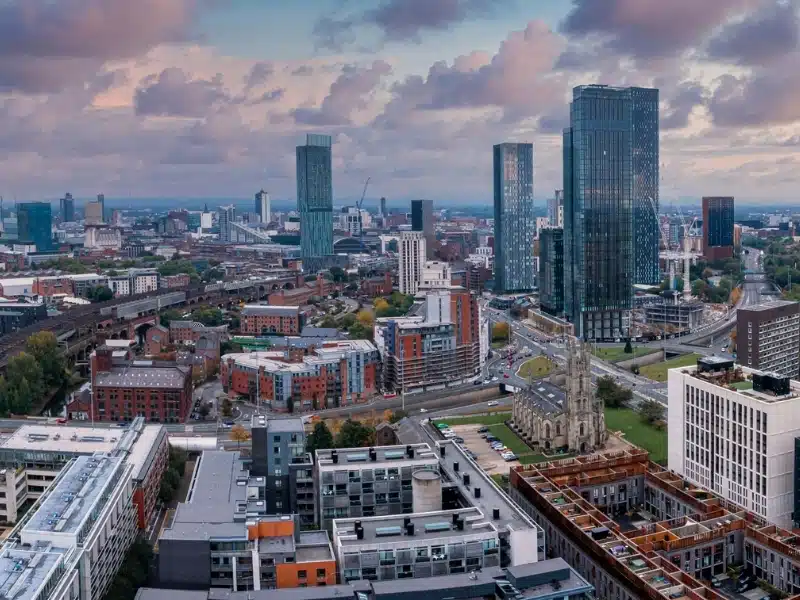
12. Rotterdam, Netherlands
Amsterdam draws the crowds, but Rotterdam shows a different side of the Netherlands. Rebuilt after World War II, it’s known for bold modern architecture, vibrant port life, and creative culture. Visit the cube houses, Markthal, and the riverside Kop van Zuid for skyline views.
The city’s mix of art, design, and food markets makes it one of the most interesting European cities for those who prefer innovation over nostalgia. Rotterdam’s prices are generally lower than Amsterdam’s, and it fits beautifully into a Europe on a budget itinerary through the Low Countries.
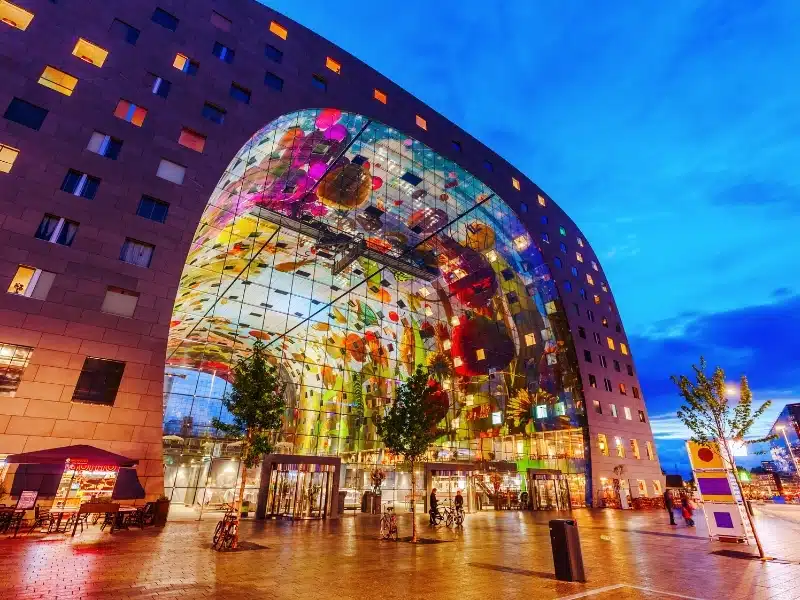
13. Debrecen, Hungary
Budapest draws the crowds, but Debrecen offers a glimpse of everyday Hungary. Set on the Great Plain, it has a calm, open feel and a proud cultural streak. The Great Reformed Church dominates the main square, while nearby you’ll find the Déri Museum with its art and archaeology collections, and Nagyerdő Park with shady paths and thermal baths.
Cafés and wine bars fill the compact city centre, and the pace of life feels refreshingly local. Debrecen combines history, culture, and value, making it an easy and authentic alternative to the capital.
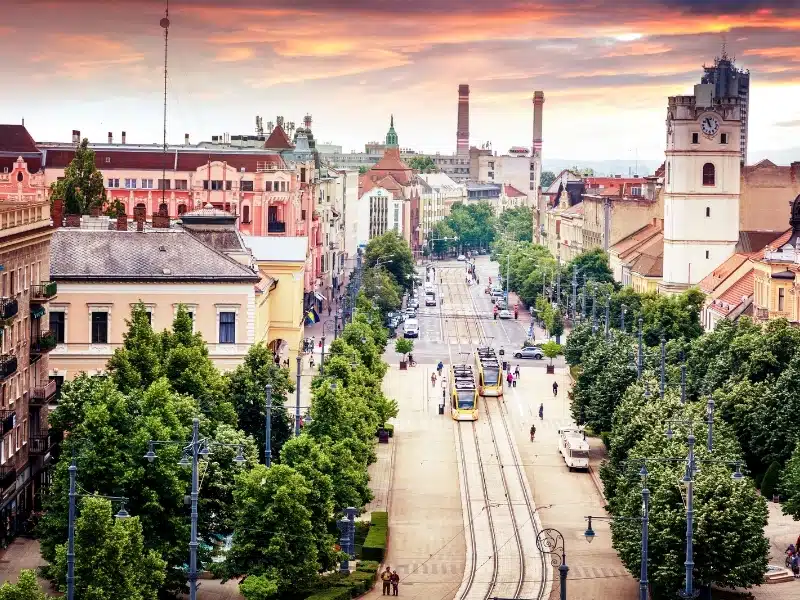
14. Bologna, Italy
Rome may be the heart of Italy, but Bologna is where the country’s appetite and intellect thrive. Home to Europe’s oldest university, its red brick porticoes, lively piazzas, and medieval towers make it one of the most beautiful cities in Italy. Food is the star here: tagliatelle al ragù, mortadella, Parmigiano, and local wines are worth the trip alone.
The old town is packed with history, and the atmosphere feels genuine and local compared with Florence or Venice. For travelers building a Europe trip itinerary, Bologna adds flavor, culture, and affordability to an Italian itinerary.
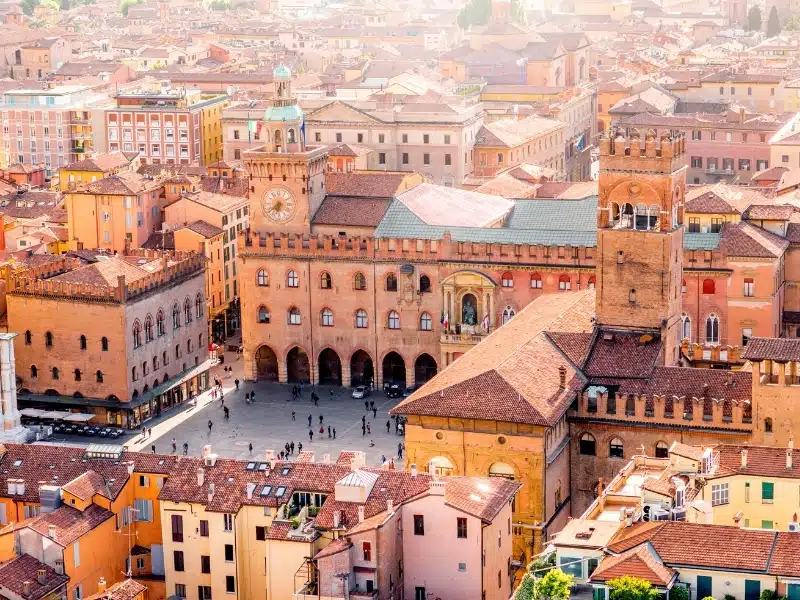
15. Split, Croatia
Dubrovnik might be Croatia’s headline act, but Split has the kind of lived-in charm that keeps people coming back. The old town is built into the remains of Diocletian’s Palace, a UNESCO World Heritage Site, where Roman walls now hold bars, cafés, and boutique hotels.
Along the Riva promenade, locals gather for evening strolls, and sea views framed by palm trees and terracotta rooftops. Ferries link Split with the islands of Hvar and Brač, while nearby national parks make for easy day trips. It’s a city that balances ancient history with Adriatic energy, and it often feels more genuine than its famous southern rival.
If you’re planning a European vacation or creating a Europe trip itinerary, visiting these cities alongside capitals can create a more textured and authentic experience. Bon voyage on your next European adventure.
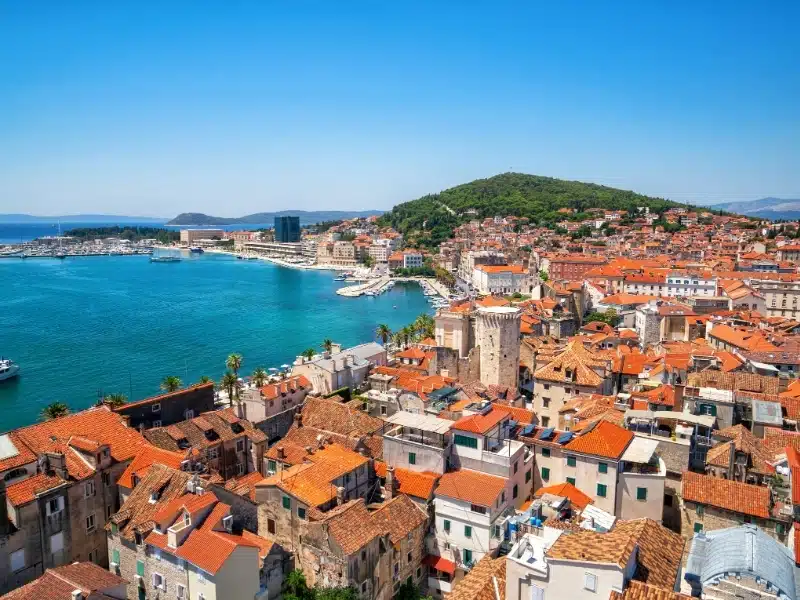
16. Cork, Ireland
Dublin might be Ireland’s capital, but Cork is where the country’s character really shines. Built on the River Lee, this compact southern city has a confident, creative spirit and a love of good food. The English Market is a local institution, packed with artisan producers and lively banter, while nearby cafés and pubs spill out onto winding streets.
Climb up to St. Anne’s Church for views across the city, explore the galleries and independent shops, or take a short drive to the coast for rugged Atlantic scenery. Cork mixes warmth, craic, and culture in a way that feels unmistakably Irish, and it’s far easier to love than it is to leave.
